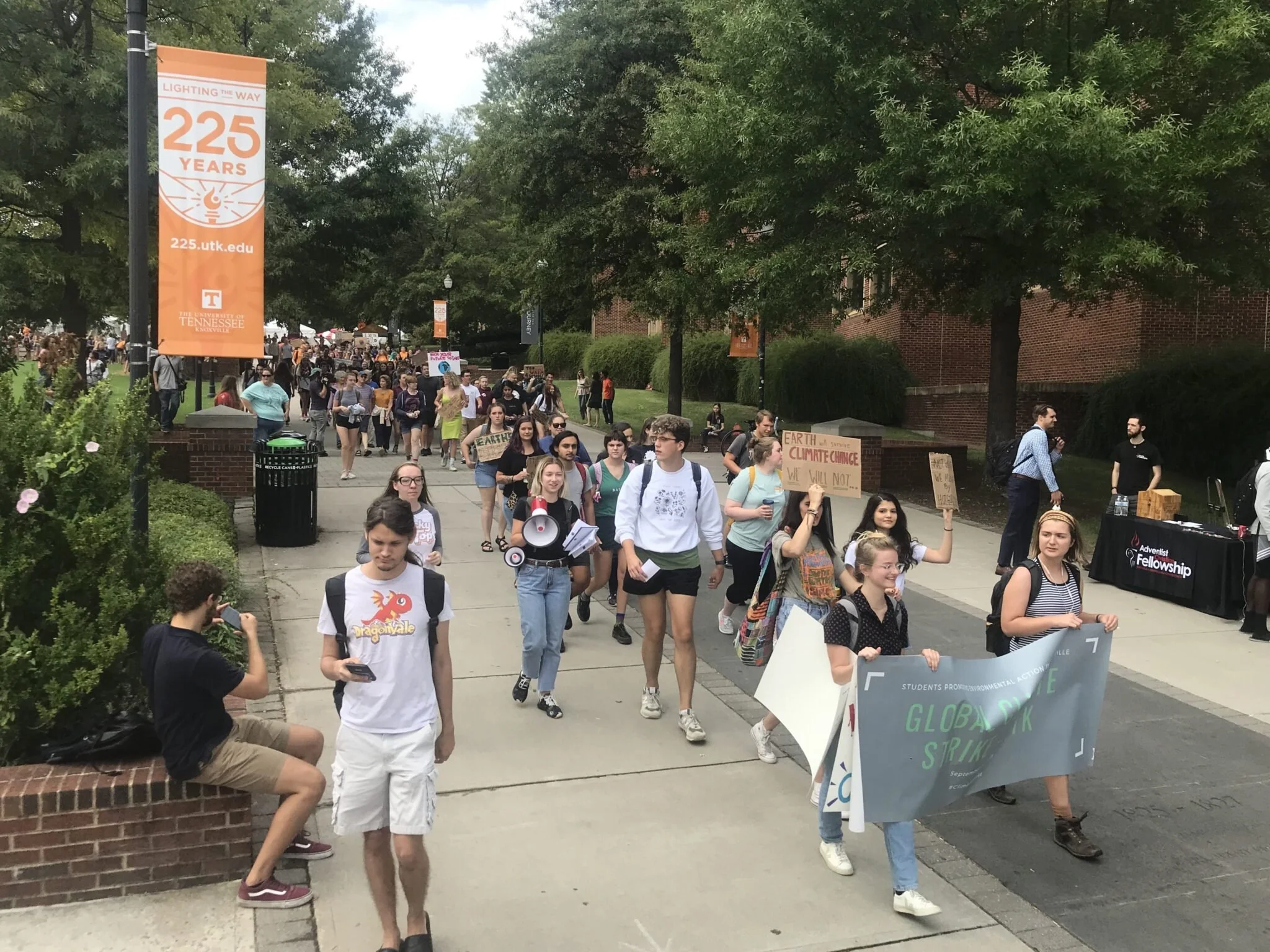Climate Change Fatigue is Real
Flooding in Kentucky in July 2022. Photo by The New York Times.
Every day on the news there seems to be a new story about the widespread effects of climate change. Whether it’s the 1,000-year flood in Kentucky in July or the wildfires that have devastated Europe earlier this summer, the harrowing effects of climate change are constant. This constancy can lead to many environmentally conscious people feeling worn out and hopeless, also known as climate change fatigue.
What is climate change fatigue?
Climate change fatigue is “the exhaustion of having to make endless moral choices when they don’t seem to make a difference, and it’s the psychological rebellion against always having to worry about every choice when other people’s lack of concern negates your efforts.” So many of us recycle, have plant based eating habits, and generally try to live low waste lives, so it is incredibly discouraging to see the catastrophic floods and devastating wildfires despite the changes we have tried to make.
This duality is also apparent in how major power players treat the threat of climate change. According to Impact by the University of Nottingham, “A lot of media coverage about climate change uses apocalyptic language, such as ‘crisis’, ‘catastrophe’, ‘disaster’ and ‘fight’…And while it is of course vital to stress the importance of the problems we face, this language can be very overwhelming.” This apocalyptic language contrasts with world governments’ glacial pace at passing effective legislation to respond to climate change. The Senate and House of Representatives just passed President Biden’s climate bill after 18 months in limbo, but some climate activists say that the bill does more harm than good. The apocalyptic language of media coverage can make people feel afraid or panicked, while the bureaucratic delays of the world governments can make people feel frustrated or hopeless.
The Six Responses to Climate Change. Photo by Yale Program on Climate Change Communication.
The Six Responses to Climate Change
Studies from Yale University shows that there are six typical responses to climate change from Americans: Alarmed, Concerned, Cautious, Disengaged, Doubtful, and Dismissive. These responses range from the Alarmed who believe that climate change is an urgent threat to the Dismissive who don’t believe climate change is even happening. While the Alarmed segment has grown by 15% between 2017 and 2021 (from 18% to 33%), it can still be disheartening to know that 9% of Americans are categorized as Dismissive. That means that about 1 in 10 Americans don’t believe that climate change is happening. This is especially discouraging for those of us who take climate change seriously, and are actively making changes in our own lives to reduce our impact. As well, the responses are divided along racial and ethnic lines, with 69% of Hispanics/Latinos and 57% of African Americans being Alarmed or Concerned, as compared to only 49% of Whites. As well, 11% of Hispanics/Latinos and 12% of African Americans are likely to be doubtful or dismissive, as compared to 27% of Whites.
Reframing Climate Change
Norwegian psychologist Per Espen Stoknes proposes five ways of reframing conversations around climate change:
A Climate Change Protest at the University of Tennessee. Photo by The Tennessee Journalists.
Since climate change can often feel distant (conversations often center around the Arctic polar bears or climate change being the problem of future generations), find ways to make it feel personal and urgent by bringing it home. The recent floods in Kentucky, Tennessee’s neighbor to the north, are a sharp example of how the dangers can feel more real.
Instead of centering conversations on carbon and global warming (which can feel abstract to many people), reframe conversations to be about human health (better air quality, increased health through plant based eating habits) and opportunities for the development of new technology. Instead of using apocalyptic language, focus on the positive opportunities that are before us.
Find ways to make climate friendly behaviors default and convenient. An example of this is how grocery stores in many countries charge for single use plastic bags, which encourages shoppers to bring their own bags. Keeping reusable shopping bags in the car is a great way to make sure they aren’t forgotten. By keeping them in the car, the choice to use the reusable bags is default.
Instead of only sharing alarming news about climate change, celebrate the positives! This is an especial value at Keep Knoxville Beautiful. While we believe climate change to be urgent and serious, we also want to celebrate the good work that people are doing in the community, whether that be picking up litter or planting trees.
Chimamanda Ngozi Adichie speaks on the danger of a single story, and this is true with climate change as well. Listen to others’ stories about how climate change is impacting their communities. Learn what other cities and countries are doing to create change. Be inspired to emulate those changes.
If you do feel fatigued by the constant bad climate news, remember that you can always take a break from the doom scrolling. In all of human history, we have never had such immediate access to all the news of the world (both good and bad!), and this can be so overwhelming. Focusing on community action instead of becoming overwhelmed by how bad things are everywhere can help alleviate the fatigue. Taking action that feels meaningful to you – whether that be through political action or personal changes – can help push the climate movement forward while also helping us feel engaged and hopeful.



